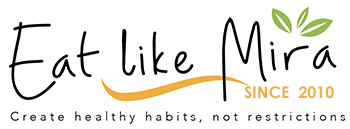Sure a balanced diet is universal, but your body has slightly different needs each decade.
20′ s:
You’re a passionate about your career and have a busy social life. Find those healthy habits that work and stick to them.
Ditch the diets: Bypass the fad diet books and detox programs, the only thing that really works long-term is a lifestyle change including a well- balanced food intake and regular exercise.
Decrease salt: Go easy on fast food like hamburgers, hot dogs and cheese-covered pizza packed with salt. Rather than relying on takeaway food, learn to make your own meals.
Watch your alcohol consumption: Stick within the standard alcohol guidelines of 2 to 3 drinks a day and no more than 4 on any occasion.
Eat more dairy: You only get one chance attaining peak bone mass by your early 20s, so remember to keep your daily calcium intake from at least 3 serves of low-fat yogurt, cheese, milk or alternatives. You can also obtain calcium from a range of non-dairy sources including almonds, sardines, and enriched rice and soy milk.
30 ‘s:
Your 30’s can be one of the most change-filled times in your life with the demands of both work and relationships, so being in top physical shape and controlling stress levels is the key.
If you are considering to have a family, now is also the time to maximise your fertility and chances of getting a healthy pregnancy and baby.
Control calories: Many women put on a few kilos during their 30’s as their metabolisms start to slow, so it’s common to adapt your eating and exercise habits.
Think iron rich: All women between 19 and 50 years old need 18 mg/day of iron, but this jumps up to 27 mg/day during pregnancy. Get into the habit of enjoying 3 to 4 serves of lean red meat a week now, plus iron-rich breakfast cereals, so that you don’t have iron deficiency fatigue, which can happen to anyone.
Folate: Folate is the key nutrient for both sexes, but requirements increase during pregnancy. To prevent neural tube defects, it is recommended that women take a folate supplement at least one month prior pregnancy, and during the first trimester.
Boost iodine: Iodine is necessary for the production of thyroid hormones, which play a key role in metabolism. It is also needed for the mental development of the baby. Boost your iodine intake by eating more fish and all kind of seafood.
40’s:
Whether you are single or having family commitments, life is likely to be busier than before. It can be hard to find time to be fit. Try to include more activities in your daily life to maintain lean muscle mass that keep your metabolism boosted.
Increase whole grains, legumes, fruits and vegetables are packed with dietary fiber to help keep your digestive system functioning in a proper way.
Probiotics: Yogurts and drinks with active culture will help boost your immune system and restore the balance of good bacteria in your gut after gastro illeness or after a course of antibiotics.
Antioxidant advantage: Maximise your intake of protective antioxidants by going for more brightly coloured plant foods like blueberries, raspberries and blackberries
50 ‘s:
In addition to the life experience gained by our 50’s. this decade involves adjustements to the challenges of menaupose. As your body, mind and mood deal with a multitude of hormonal changes, you need to adhut your eating and exercise habits for the future.
Use portion control: Hormonal changes can result in the thickening of the waist due to fat redistribution. So eventhough your weight may not change on the scale. you simply feel heavier. An good focus on portion control will help your weight stay on track.
Calcium: There is evidence that a high calcium intake will slow the rate of bone loss on post-menauposal women and may reduce teh risk of bone fracture later in life. Ask your health professional about the need of calcium and vitamin D supplements.
Cut the saturated fat: The heart-health protection of oestrogen is lost in post-menopausal women, so the risk of cardiovascular disease increases. Go for lean meats, skinless chicken and low-fat dairy and limit takeways foods to help lower your saturated fat intake, which in turn will raise blood cholesterol levels.
60′ s:
With your appetite decreasing you may find it easier to maintain a healthy weight but you need to make sure your diet has enough variety and essential nutrients for maximum vitality. Things can also get confused for people diagnosed with type 2 diabetes, cardiovascular and osteoporosis.
Nutrient density: Focus on natural foods. Eat fresh fruits and vegetavles, as well as whole grains. Take protein packed eggs and lean red meat packed with iron, zinc vit B12 and omega 3 fatty acids.
Go outside each day as sunlight boost your vitamin D synthesis and increase your bone mass.
And at the end, dont forget that nutrition advice should only be given by a professional expert! 😉


 WhatsApp us
WhatsApp us